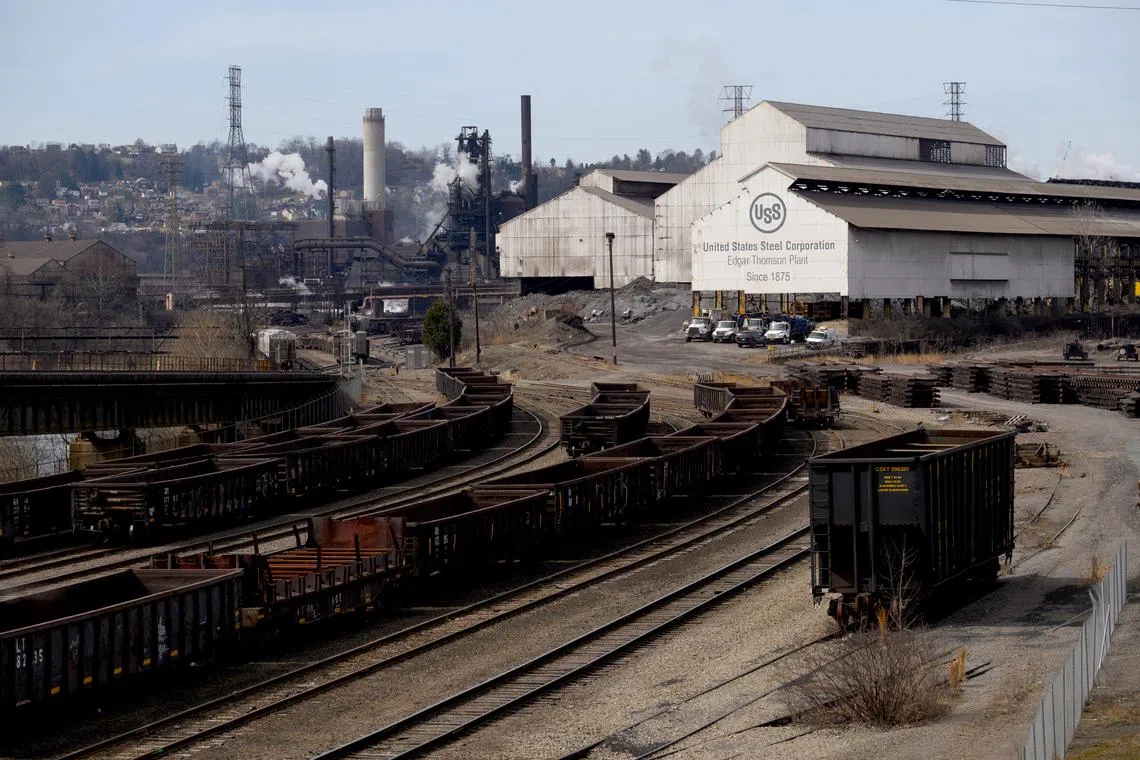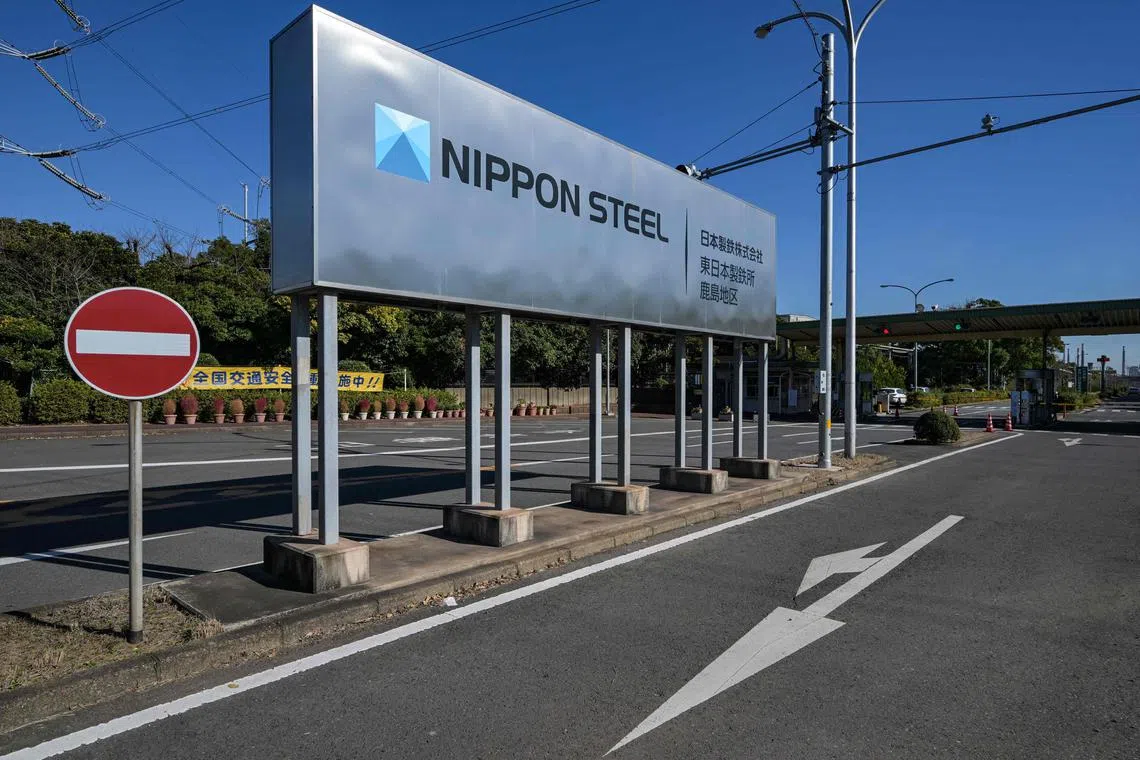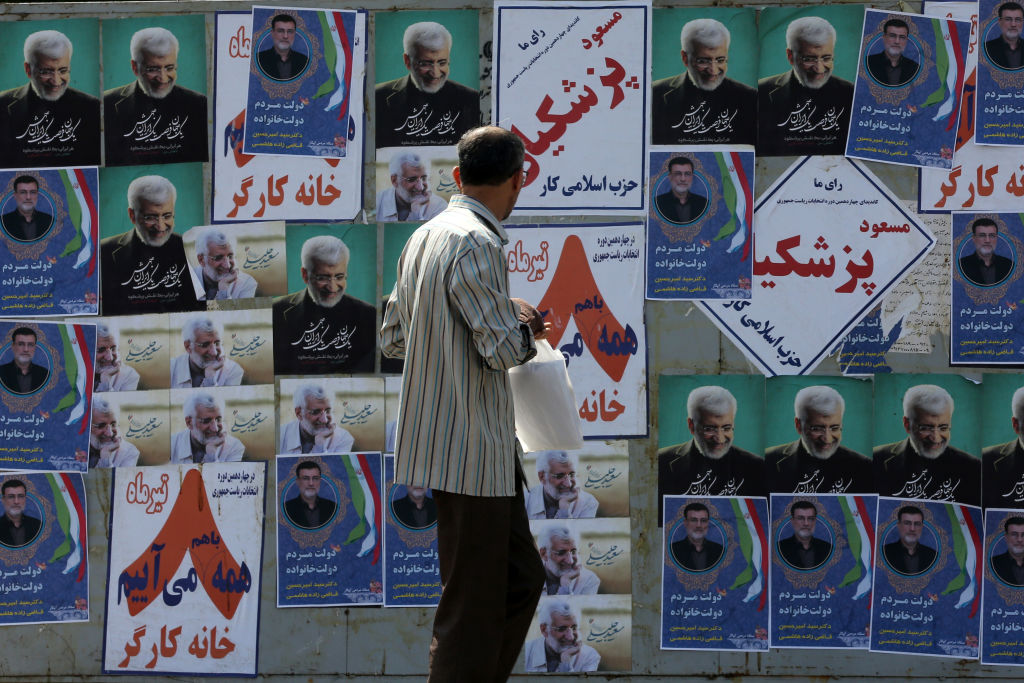TOKYO – Visiting US Secretary of State Antony Blinken was in damage control mode on Jan 7 as he reaffirmed the importance of economic ties with Japan in talks with Japanese leaders.
Mr Blinken also stressed the significance of investments by Japanese companies in the United States.
This would normally be considered common sense – Japan has been the largest source of US foreign direct investment since 2019.
Yet, the need to reassert the point – at a working lunch with Japanese Foreign Minister Takeshi Iwaya, according to a readout – signals the damage wrought by US President Joe Biden’s decision to halt a US$14.9 billion (S$20.3 billion) bid by Japan’s Nippon Steel to acquire US Steel on “national security” grounds.
That cast a pall on Mr Blinken’s farewell tour to Tokyo, coming ahead of the Jan 20 inauguration of Donald Trump as US President.
Mr Blinken did not take questions from the waiting media pack at the Prime Minister’s Office in Tokyo after a closed-door meeting with Prime Minister Shigeru Ishiba.
Instead, he chose to focus on the positives in brief remarks expounding on the relationship as “an alliance, a partnership, a friendship that’s grown stronger than it’s ever been before”, with their economies “extraordinarily intertwined”.
Mr Iwaya, however, told reporters in an evening news conference: “At this juncture, I felt I had no choice but to raise the issue of the US Steel acquisition.”
He added: “From my perspective, Japanese investments in the US have always been made to benefit both countries. The plan had the backing of US Steel workers, and to block it on the basis of national security grounds was extremely regrettable.”
His remarks came a day after Mr Ishiba was damning in his indictment of the situation: “Unless the US properly explains the rationale of their decision to label Japan a ‘national security’ concern, there is no starting point for further discussions.
“No matter how much of an ally we are, clarifying this point is extremely important to determine our future relationship.”
Mr Biden’s Jan 3 decision has triggered ugly lawsuits by both Nippon Steel and US Steel against the US President, paving the way for protracted legal battles as both companies allege “illegal” political intervention.
All this is unprecedented: Much like how no American president has ever blocked a Japanese deal with the US, no prominent Japanese company has ever sued the US president.
The Washington Post reported on Jan 5 that Mr Biden’s veto had overridden the advice of top aides, including Mr Blinken.
“This acquisition would place one of America’s largest steel producers under foreign control and create risk for our national security and our critical supply chains,” Mr Biden said, without providing any evidence of the risks.
He added: “US Steel will remain a proud American company – one that’s American-owned, American-operated, by American union steelworkers – the best in the world.”
This has triggered name-calling among the parties involved, not least US Steel president David Burritt who described the decision as “shameful and corrupt” and warned that it would jeopardise jobs.
Mr Burritt said on Jan 3: “He insulted Japan, a vital economic and national security ally, and put American competitiveness at risk. The Chinese Communist Party leaders in Beijing are dancing in the streets.”
Nippon Steel chairman Eiji Hashimoto, meanwhile, denounced Mr Biden’s “illegal political interference” in a news conference on Jan 7, where he reiterated his company’s commitment to acquire US Steel.
Nippon Steel is the world’s fourth-largest steelmaker and US Steel, now cut down to size as the 24th largest despite its storied history. Founded in 1901, it was once the world’s largest steel producer and had faced a rival bid – at around half the value with none of the commitments made by Nippon Steel – by US steelmaker Cleveland-Cliffs.

US Steel is now cut down to size as the 24th largest steelmaker despite its storied history.PHOTO: MADDIE MCGARVEY/NYTIMES
Nippon Steel had committed to keep US Steel plants open with no layoffs for 10 years, make additional capital investments, and ensure a majority of board members are Americans. Thousands of rank-and-file US Steel workers supported the bid.
Yet the deal came up against opposition and semantics in an election year, with candidates on both sides of the US political divide vowing to block the buyout.
US Steel is headquartered in the battleground state of Pennsylvania, while the powerful United Steelworkers union, which represents about 850,000 members, had denounced the deal that was first made public in December 2023.
The two companies are now suing on the basis that Mr Biden “ignored the rule of law to gain favour” with the union to win votes, citing “illegal and improper political and anticompetitive interference”.

Nippon Steel had committed to keep US Steel plants open with no layoffs for 10 years, make additional capital investments, and ensure a majority of board members are Americans.PHOTO: AFP
Japan’s most powerful business lobby Keidanren likewise questioned the logic behind the decision, saying that there were bound to be questions among Japanese corporates about the future of doing business with the US.
Experts, however, believe that any talk of a chilling effect on investments may be overstated, given the healthy spate of investments and acquisitions that were made across 2024 even as the Nippon Steel wrangle was playing out in the media.
The US’ sizable market presents huge opportunities for business growth, and there is little evidence so far that Japanese firms might be spooked into changing course, even if they will be more mindful about factors such as timing.
“Many Japanese companies believe that this is an exceptional case, so I don’t think it will have a big impact. Unless, of course, this turns out to be not-so-exceptional and there are many cases to follow,” Dr Sota Kato, a former deputy director at Japan’s Ministry of Economy, Trade and Industry, told The Straits Times.
Now a research director at the Tokyo Foundation for Policy Research think-tank, Dr Kato noted that government and business leaders have privately lamented the awful timing.
“The official reason given is national security, but everyone knows (Biden’s) true intention is politics and the need to appeal to union workers in the rust belt. This is why many companies think this is a one-of-a-kind case.”
- Walter Sim is Japan correspondent at The Straits Times. Based in Tokyo, he writes about political, economic and socio-cultural issues.
Join ST's Telegram channel and get the latest breaking news delivered to you.

 By The Straits Times | Created at 2025-01-07 14:37:36 | Updated at 2025-01-08 13:25:35
23 hours ago
By The Straits Times | Created at 2025-01-07 14:37:36 | Updated at 2025-01-08 13:25:35
23 hours ago








